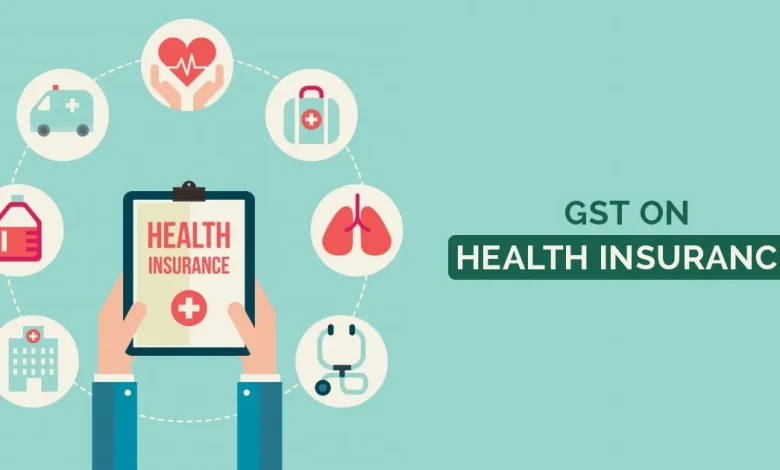The Real Cost of GST on Health Insurance Policies

The price of health insurance plans in India has changed dramatically since the Goods and Services Tax (GST) was implemented. Health insurance premiums are subject to an 18% tax under the GST framework, raising the final cost to customers.Policyholder premiums have increased as a result of this tax burde; however, it’s crucial to remember that GST only applies to the premium amount and not to the settlement of claims.
The tax helps uniform tax rates throughout the insurance industry, albeit raising premiums. To counteract the effect of the levy, policyholders may still look for less expensive options or select insurance with more coverage.
1. Impact of GST on health insurance
Health insurance and medical insurance were subject to service tax prior to the GST. Any insurance policy sale would be subject to a 15% overall service tax, which would be divided into three parts: 14% for the Basic Service Tax, 0.5% for the Swacch Bharat Cess (SBC), and 0.5% for the Krishi Kalyan Cess (KKC).
The Goods and Services Tax (GST) on health insurance premiums in India is still 18% as of December 2024. There has been disagreement over this rate, with many calling for a decrease to lower the cost of health insurance. The GST Council has discussed this matter in recent months. The Council recognized the need to reduce the levy on health and life insurance premiums in September 2024 and assigned a group of ministers to look into the issue more.

2. GST on Health Insurance Applicability, HSN Code and GST Rate
Applicability
Individuals and corporations who purchase health insurance premiums for coverage are subject to GST. Health insurance is categorized as a financial service under the GST, and the tax is applied to the premium amount. Claims paid under a policy are exempt from it.
HSN number:
For health insurance services, the Harmonized System of Nomenclature (HSN) number is 9971. “Insurance services” falls within the financial services area and is covered by this code.
GST charge:
Health insurance premiums are subject to an 18% GST charge. The cost of health insurance coverage is directly impacted by this increase from the prior service tax rate of 15%.
Impact on Policyholders:
Customers pay higher premiums as a result of the 18% GST, which raises the total cost of buying health insurance. However, the tax does not apply to claim payouts; it only applies to the premium.
Taxation on Add-Ons:
The overall cost of the premium is increased by the 18% GST applied to any extra riders or coverage, such as critical illness add-ons.
3.How will GST on health insurance premiums work?
The way GST on health insurance premiums operates is by imposing an 18% tax on the policyholder’s premium payment. Both individual and group policy premiums, as well as any riders or add-ons like critical illness coverage, are subject to this levy.
The total cost of health insurance goes up when the GST is applied to the premium amount. The amount that the insurance company pays the policyholder for a claim, however, is exempt from this tax. Under HSN Code 9971, the tax is uniform throughout the financial services industry and is a component of the larger financial services sector.
The adoption of GST guarantees uniformity in the taxing procedure for insurance products, even though it increases the cost of acquiring health insurance.
Conclusion
In conclusion, because an 18% tax is imposed to the premium amount, the implementation of GST on health insurance policies has raised policyholders’ premiums. Because the levy is applied to both individual policies and supplemental coverage or riders, consumers now pay more for health insurance. Nonetheless, claim settlements are exempt from GST, which lessens the financial strain.
Although the higher tax rate results in higher policy prices, it also ensures better openness and uniformity by standardizing taxation throughout the insurance industry. This modification is in keeping with the larger initiative to simplify the financial services sector in India.
FAQs:
1. Is GST applicable to all types of health insurance?
In India, GST is applicable to all kinds of health insurance policies, including group, family, and individual plans. The premiums paid for these insurances are subject to an 18% GST rate. Furthermore, the same GST rate applies to any riders or add-ons like accidental benefits, maternity benefits, or critical illness coverage.
2. Does GST apply to insurance claims?
No, insurance claims are not subject to GST. Only the premiums paid for health insurance plans are subject to GST; policyholder payouts for claims are not. There is no extra GST applied to the reimbursement amount when a claim is paid out, such as for hospitalization or medical costs covered by a health insurance policy. Only the premium amount paid at the time of policy purchase is subject to tax.
3. How can I reduce the impact of GST on health insurance premiums?
To reduce the impact of GST on health insurance premiums, consider opting for long-term policies, as insurers may offer discounts for policies with a coverage period of 3-5 years, which can help lower the overall GST burden. Additionally, choosing family floater plans over individual ones allows for more cost-effective coverage, spreading the GST cost across multiple family members.



